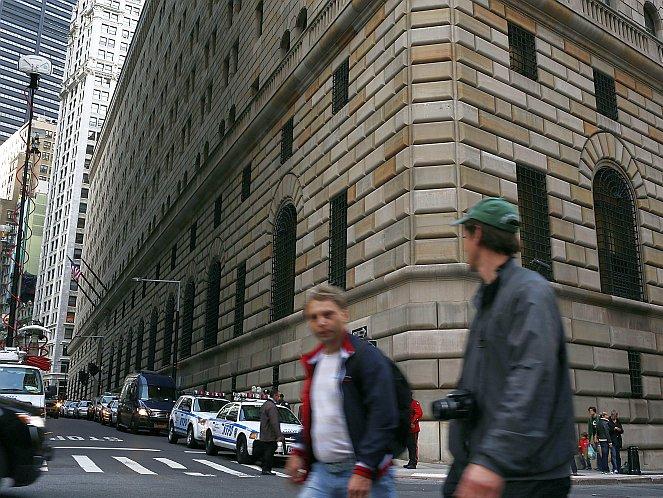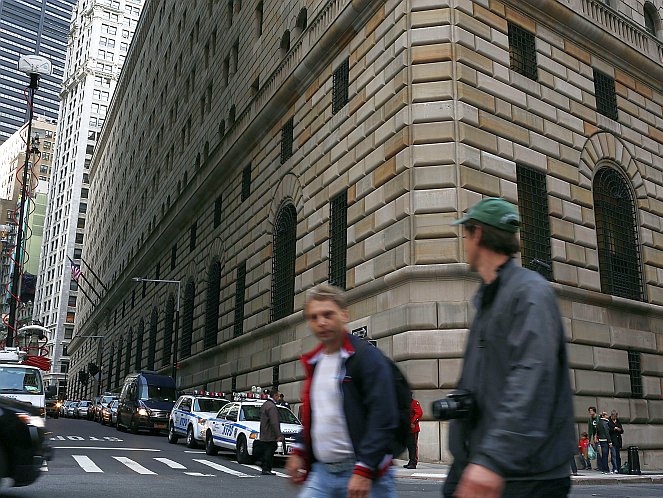European Market Insight
Ron Paul is not alone.
The Republican congressman from Texas who wants to audit the Federal Reserve has gained some like-minded friends in Germany. Debates intensified last week after a government oversight body ordered a full audit of its gold stored in the United States.
This topic hardly stirred a resilient market last week. The EURO STOXX Index gained 2 percent to close the week at 2,547. The euro lost a modest 0.7 percent to end at $1.2832. Greece is still an issue and will likely remain an issue for the time being.
Yet the controversy over Germany’s gold reserves warrants an explanation. The country has always been a staunch ally of the United States, and not only in economic matters and trade. Why is Germany, which has been storing its gold with the New York Fed for decades, suddenly keen to find out whether the gold is still there?
On the surface the answer is simple. The Bundesrechungshof, a similar institution to the Government Accountability Office in the United States, ordered the German central bank to fully audit its gold reserves at the end of October. Carrying out that task would be easy, if only all the gold was stored in Germany. Forty-five percent of its 3,396 tons of gold, however, are stored under the New York Fed in Downtown Manhattan.
Gold Accumulation After World War II
The reasons why such a large amount of gold is stored in New York are historical and made a lot of sense during the Cold War. After World War II, Germany was broke, it had nothing left by way of any type of currency reserves, let alone gold. The Marshall plan and the new currency, the Deutsche mark helped the economy to recovery quickly. Germany was soon racking up large trade surpluses with various countries.
Due to the nature of the Bretton Woods currency system of fixed exchange rates, trade imbalances ultimately settled in gold. The dollar was the trade settlement currency and exchangeable for gold at the price of $35 per ounce.
If the United States imported more from Germany than it exported, the balance would ultimately be settled in gold. Germany not only ran surpluses with the United States, but also other countries.
It was costly to ship large amounts of gold around, so Germany simply accumulated a hoard in New York and other major gold trading centers such as London and Paris. The bars easily moved from one country’s vault to another’s and Germany increased its stash from 1,328 tons in 1956 to 4,034 tons in 1969. During the difficult economic times of the 1970s, Germany lost some reserves.
Another reason why the gold was stored abroad, and not in Frankfurt, was the invasion threat of the Soviet Union. In case of an invasion, the Soviet Union would have attacked Germany first as the line separating NATO and Warsaw Pact-nations was delineated between East and West Germany.
Euro Changes Situation
Without the threat of a Soviet invasion and the advent of the euro, calls for repatriation intensified.
There was no longer the probability of theft after an invasion. In addition, Germany’s gold reserves form an important element in backing the euro within the eurosystem of central banks. America’s gold backing the dollar is in America. Why shouldn’t Europe’s gold backing the euro be located in Europe?
It’s possible to move large amounts of gold, though it will be costly. Germany had already moved 940 tons from London to Frankfurt after 2000. A return of the overseas gold had precedent. In 1965, French President Charles de Gaulle sent over warships to withdraw French gold from New York. As recently as 2011, Venezuelan President Hugo Chavez pulled his country’s gold out of London.
Bundesbank Versus Bundesrechungshof
The outbreak of the global financial crisis in 2008 might also have increased the feeling to secure the treasure. Otherwise, it is hard to explain why the Bundesrechnungshof would issue an order for the audit now, after it never found any reason to for decades. It is now criticizing that the bars have never been checked for consistency and weight. The only thing the Bundesbank ever received was a written confirmation by the respective custodian.
The Bundesbank itself wants to audit neither the gold holdings in Germany nor elsewhere. It frequently reassured Americans that the Federal Reserve Bank of New York has its complete trust. This was affirmed in a speech last week by Andreas Dombret, a member of the Executive Board of the German Bundesbank, to William Dudley, president of the New York Fed.
Even if the Bundesbank were to ask for a full audit, it would likely be denied, just like Ron Paul’s request.
The Week Ahead
The European Central Bank will hold its monetary policy meeting this week. We are not likely going to see any meaningful announcements, but some softening in the language might prepare the market for easing in December.
In terms of economic data, Spanish unemployment figures are being released on Nov. 5. It is an important gauge to see where the country’s economy is going. It is very unlikely to post better-than-expected figures.
The Epoch Times publishes in 35 countries and in 19 languages. Subscribe to our e-newsletter.







